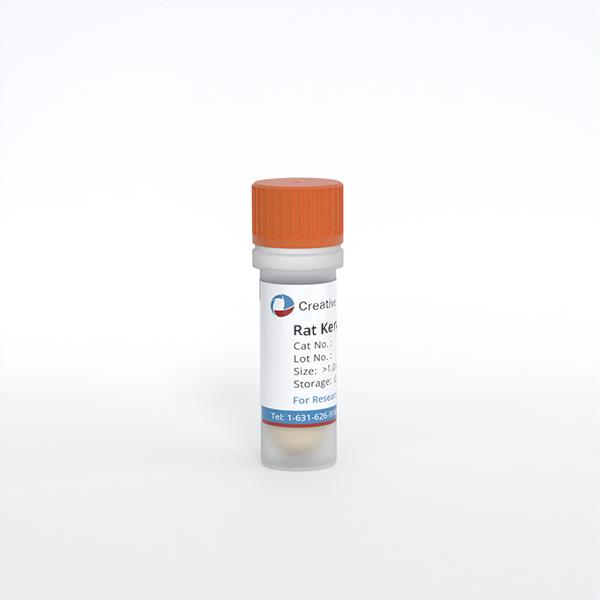Keratocytes
The keratocytes, or corneal fibroblasts, are highly specialized cells that are sandwiched between orthogonally arranged layers of collagen lamellae in the corneal stroma. They play a key role in maintaining the structure and transparency of the cornea as they are the source of stromal collagen and proteoglycans. These cells exhibit a slow turnover and are sparsely arranged in the stroma, buy they form an interconnected cellular network with one another through dendritic processes. Keratocytes also contain crystallin, a highly expressed protein that is known to contribute to the transparent nature of the cornea. Upon injury, keratocytes are stimulated to either undergo cell death or to lose their quiescence and transition into repair phenotypes. These repair phenotypes can either promote regeneration or they can induce fibrotic scar formation, the latter of which is detrimental to the otherwise transparent cornea. Recently, there has been considerable interest in the response of keratocytes to injury due to the expansion in development and application of keratorefractive surgeries for correcting vision.

